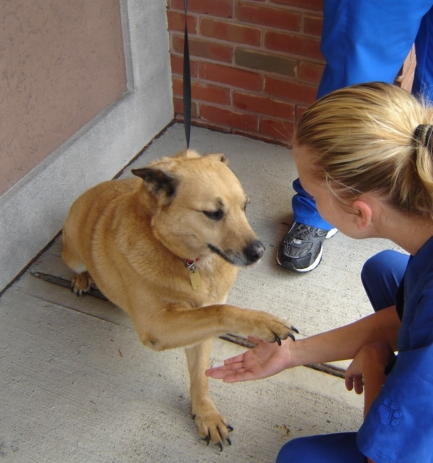Pet Behavioral Medication: Pros and Cons

So today I felt like touching on a subject with a little bit of controversy attached to it. Full disclosure: this is a touchy subject that infringes upon the borders of psychological health for both humans and animals. Regardless of your opinions on these subjects, to move forward with a productive discourse we all have to admit to ourselves that chemical treatments affecting brain chemistry are an entirely new matter. The science itself is less than a hundred years old, with results being recorded responsibly for only a fraction of that time. So that said, let’s try to look objectively at how behavioral medications can help or hurt our animal friends.
Types of Medicine:
- Benzodizaepines (BZs)
- Monoamine Oxidase Inhibitors (MAOI’s)
- Tricylic Antidepressents (TCA’s)
- Selective Serotonin Reuptake Inhibitors (SSRI’s)
- 5 hydroxytryptamine (5-HT) agonists
These medications can be used to decrease stress, eliminate compulsive behaviors, reduce fear of people and noises, and even aid in comprehension and learning.
Furthermore, using these medications will allow for easier applications of behavior modification techniques. Having a stress free dog or cat enables you to more easily train them for or against desired or unwanted behaviors, respectively. So just like your eccentric aunt Delilah needs her meds to “even her out” and make her an acceptable dinner guest, these medications can suppress the symptoms of anxiety and stress in your animal companions and have very beneficial effects on their obedience.
Cons:
To borrow a quote from self-help guru, Tim Ferris, “There is no biological free lunch.” This means that every positive effect imposed by a medication must come in conjunction with unwanted side effects. Some of these can be inconvenient, while others are downright dangerous.BZ’s in particular have some things you need to watch out for. BZ’s act on an animal’s brain chemistry much like alcohol would on a human being. That mean’s reckless and uninhibited behavior, memory reduction, restlessness, slowed reaction time, and it can actually increase anxiety.
TCA’s can cause diarrhea, dryness of mouth, constipation, and fluctuations in heart rate.
MAOI’s are fairly mild in side effects, but have been shown to cause dangerous health effects when mixed with cheese.
SSRI’s can be bad for pet’s organ health and can actually make animal behavior worse in certain cases.
By far the biggest problem with these medications occurs when they are used as a cure all for the underlying problems a pet is going through. Since these meds suppress symptoms, some owners take that as a cue to continue medicating indefinitely. All stress/anxiety/aggression medications should be seen as a temporary effort to compliment the behavioral modification training that an owner should look to apply to the pet’s specific problem.

That’s all we’ve got on the subject today. Hopefully, you’ve learned some useful information that you can either spread or apply yourself. Check again soon for more topical pet information on the Pet Bucket blog.





 Tutti i post
Tutti i post Suggerimenti e trucchi
Suggerimenti e trucchi Salute e benessere
Salute e benessere Recensioni dei prodotti
Recensioni dei prodotti Divertente e eccentrico
Divertente e eccentrico





